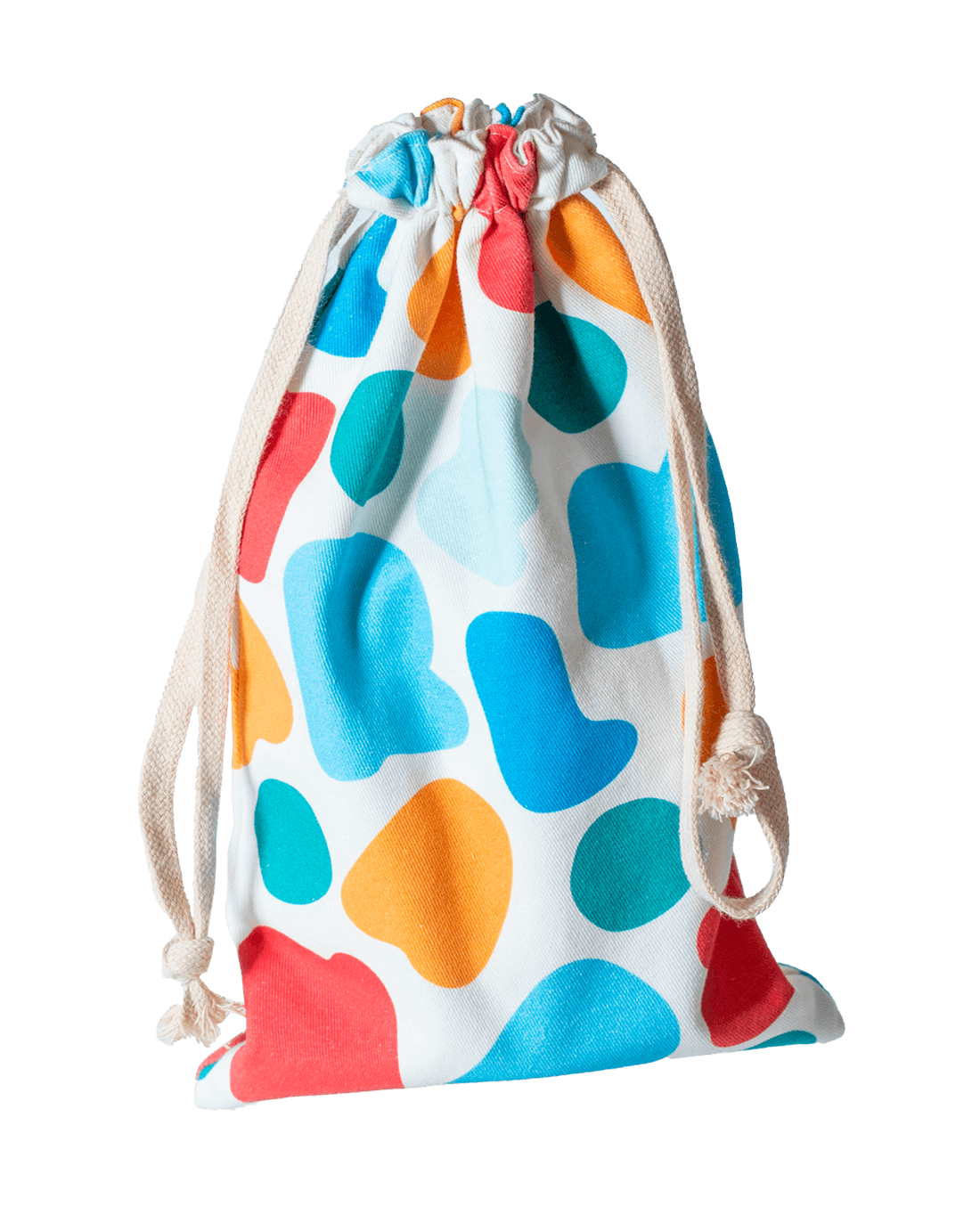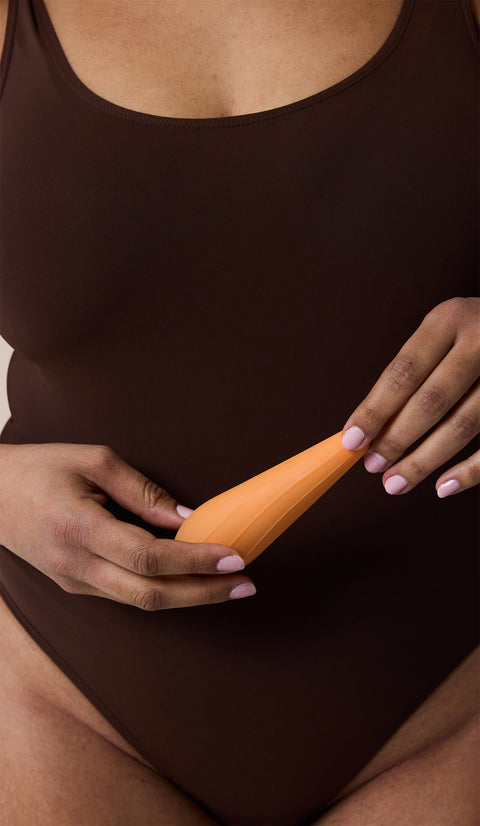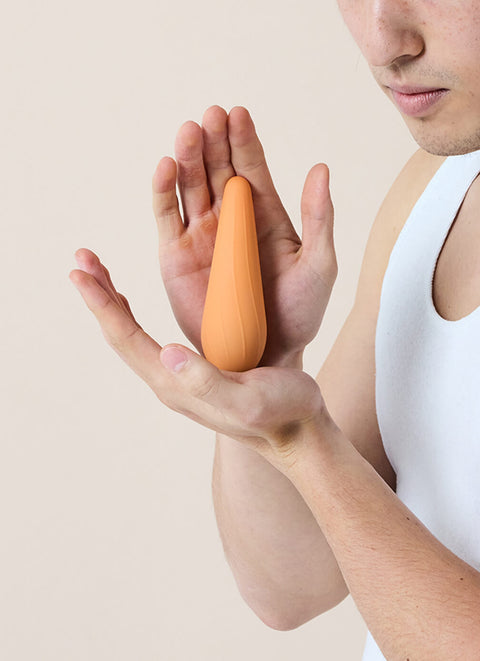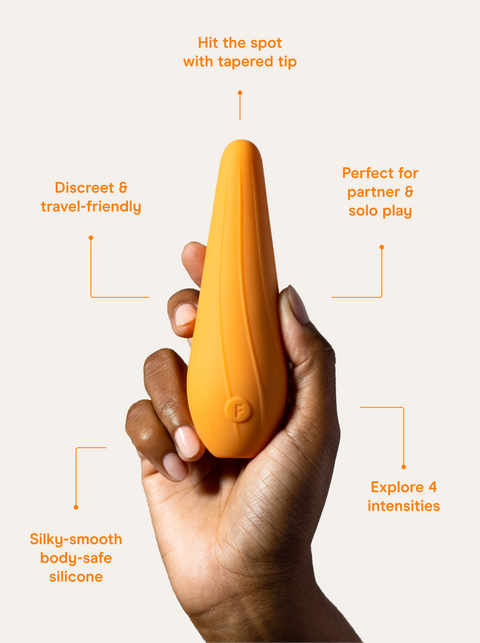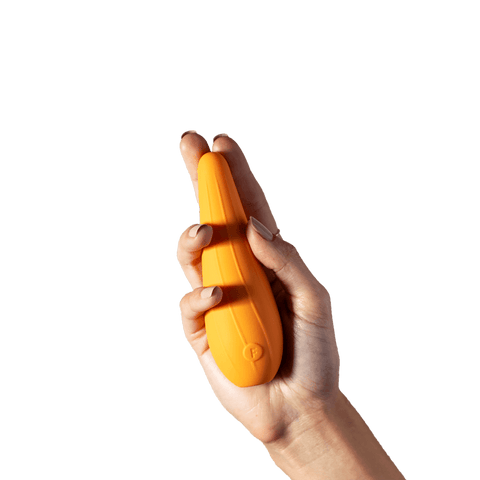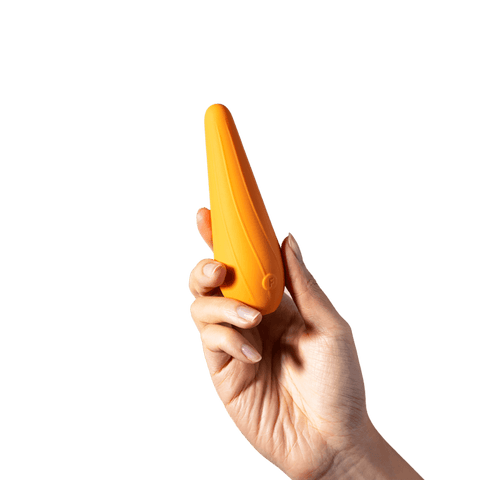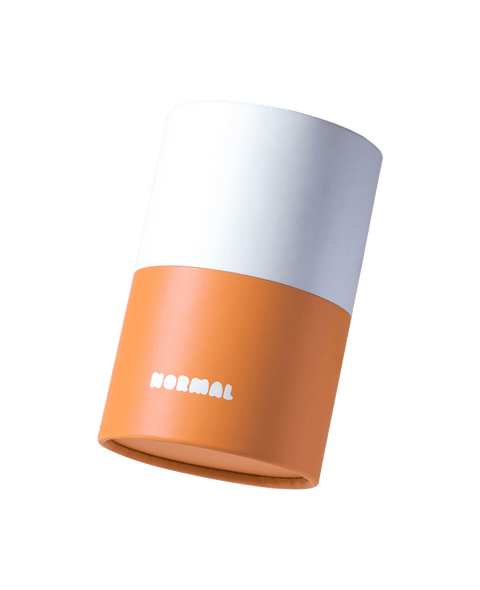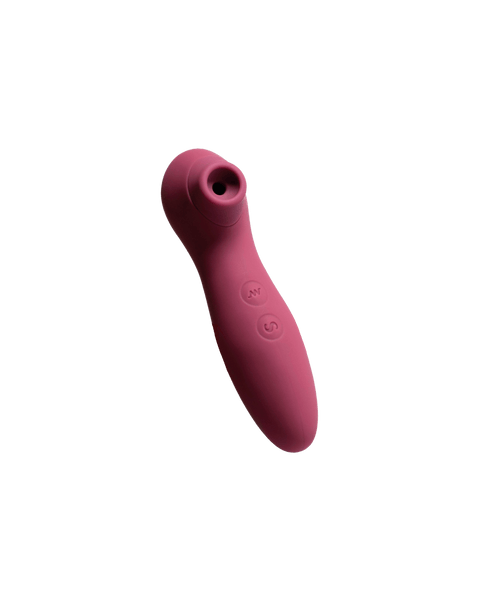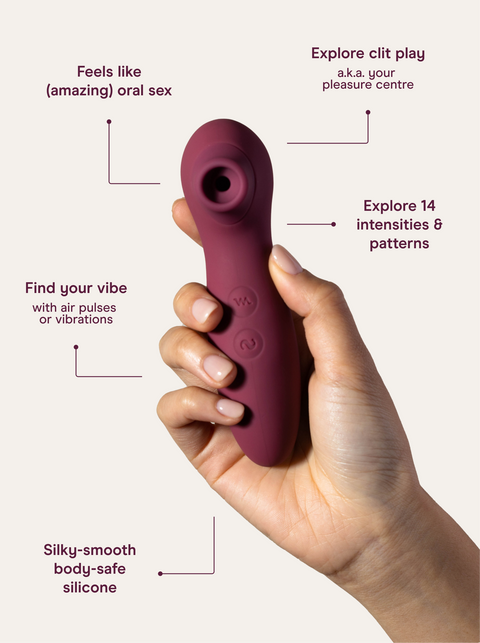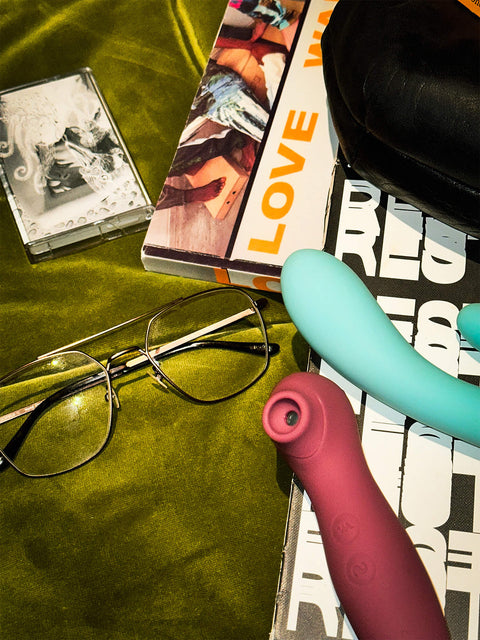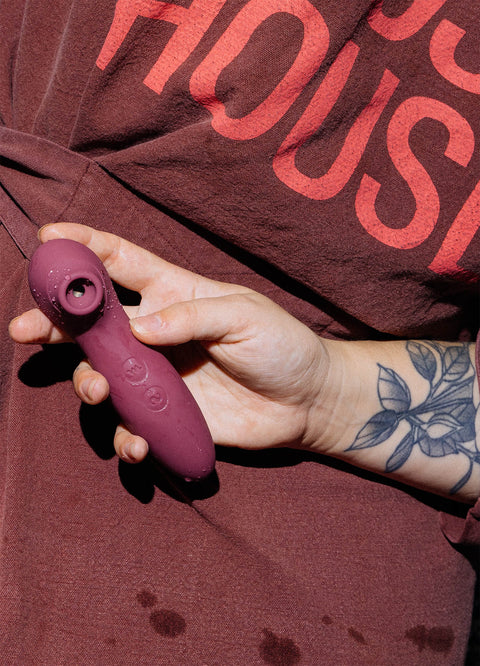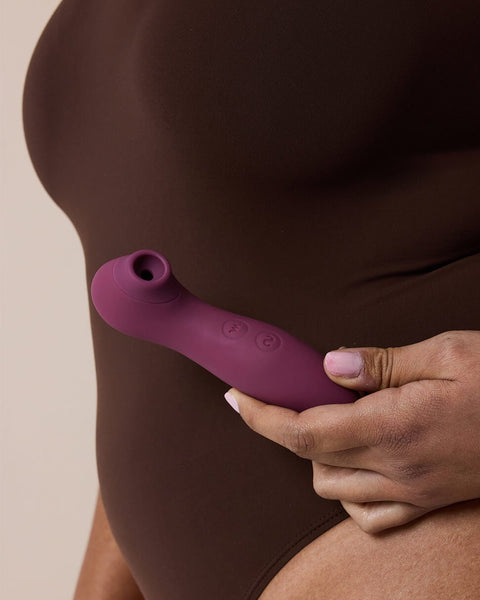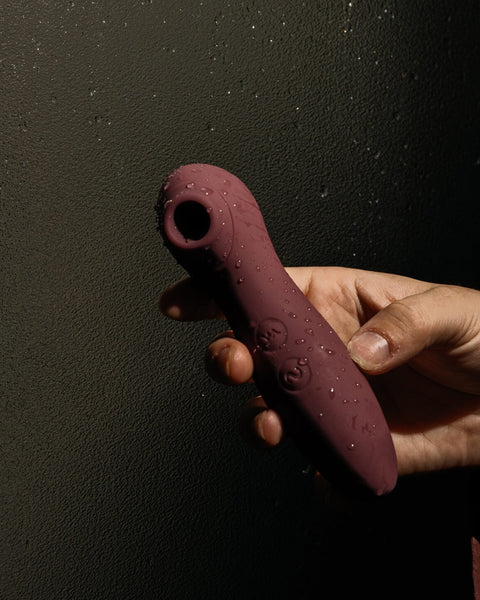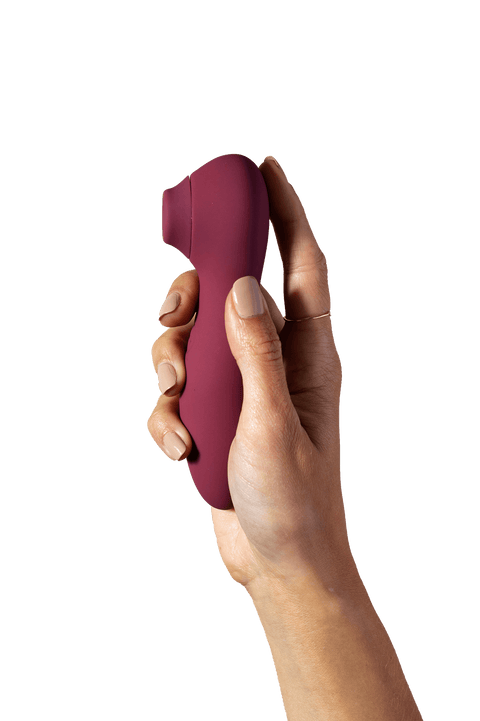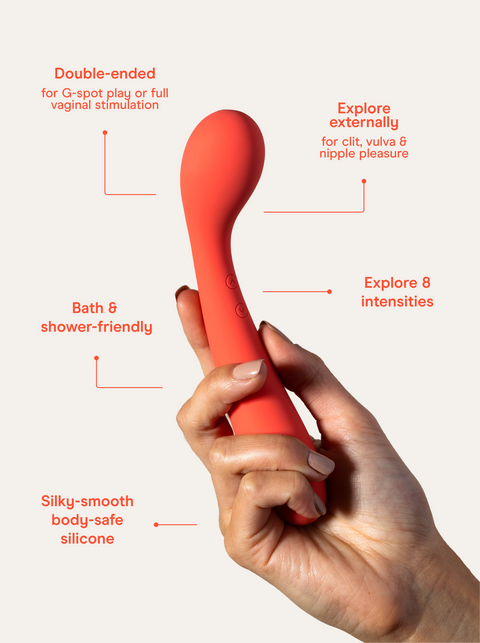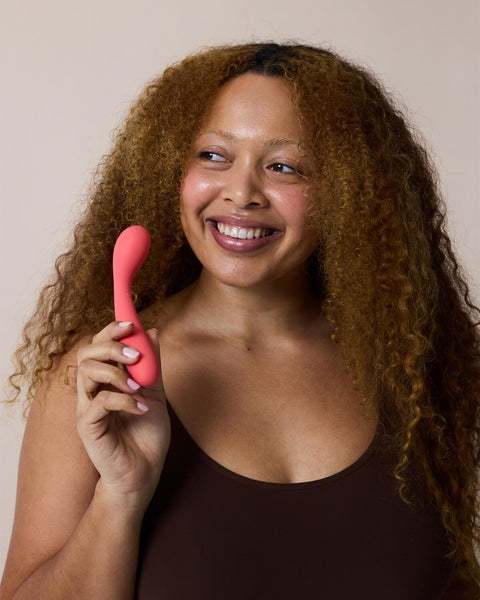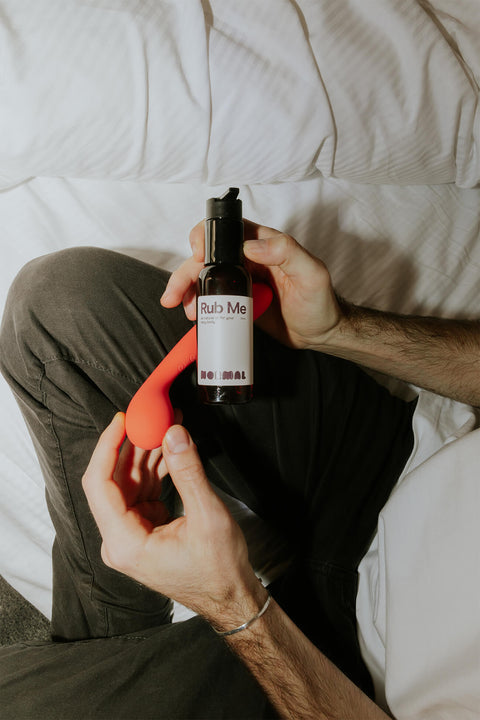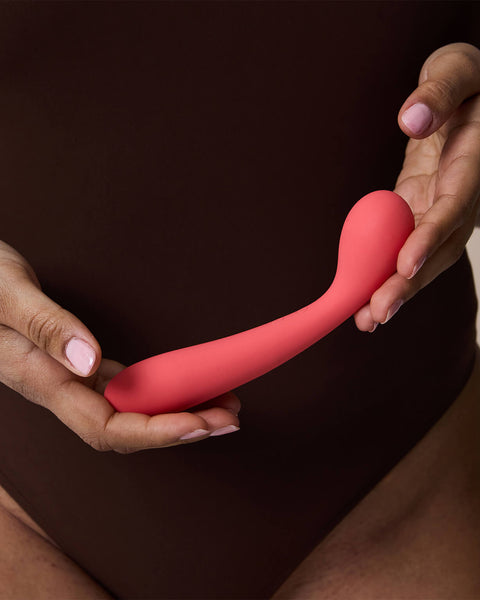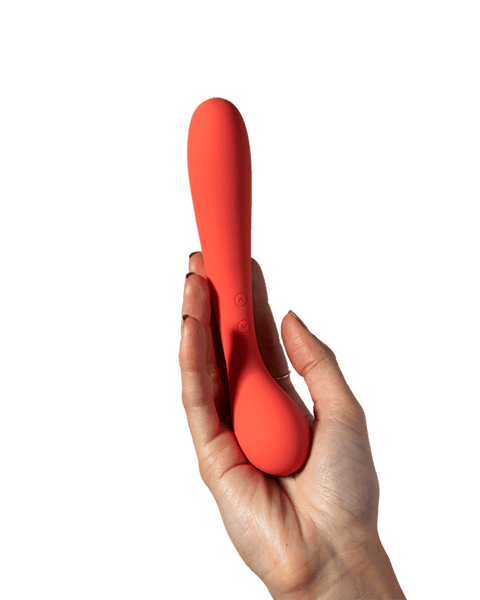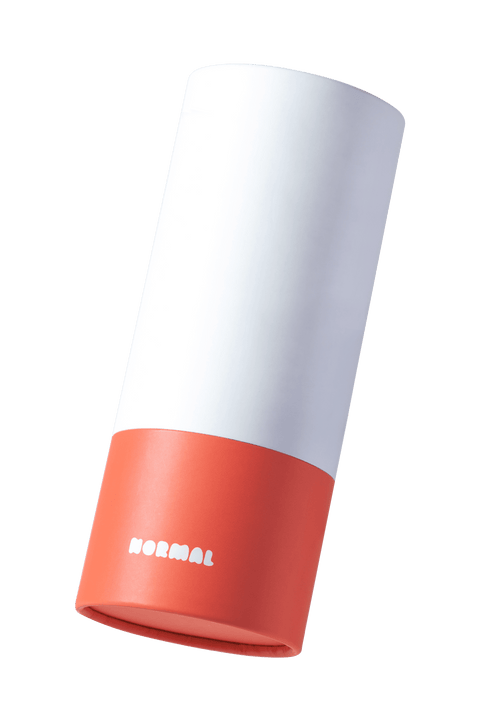Lube is one of those things that a lot of us see and hear about but have never tried for ourselves.
We might have an old bottle or two rattling around in the bedside table drawer but in the heat of the moment, whether we’re indulging in solo play or getting intimate with a partner, it often gets forgotten—or we get worried we might make things awkward by bringing it out, so it goes ignored.
We think it’s about time that lube became appreciated, normalised, and incorporated into our regular sexual routines.
Here’s our big guide to lube, including how to use it, which lube to use, how to talk about it with your partner—and the one moment you shouldn’t use lube.
Who needs lube?
Pretty much everyone should give lube a try!
There’s an idea that lube is only used by people who have trouble getting aroused or don’t get wet enough, and we think it’s time to get rid of that misconception completely.
No matter who you’re playing with or what you’re doing, lube can make things easier, safer, and a whole lot sexier.
How do I use lube?
Lube is commonly used during vaginal and anal penetration.
The anus isn’t self-lubricating, which means that there’s no natural ‘wetness’ that the anus produces.
This can make anal penetration without lube difficult and even painful, as it can cause rips and tears without proper lubrication.
Likewise, although the vagina is self-lubricating, it doesn’t always produce as much lubrication as we’d like.
Wetness can vary depending on your menstrual cycle, your age, your stress levels, your genetics, and any medication you’re on—and, as bodies are pretty unpredictable, one day you might be super wet and the next you may not be that wet at all.
Plus, whether or not we’re wet isn’t necessarily a signal of whether or not we’re aroused. In the same way that our bodies can create a lot of lubrication and wetness when we’re not aroused, we can also be really aroused but not wet. And this is when lube comes in handy!
But it’s not only penetrative sex that lube can be used for. It’s also great for masturbation and solo play, with a toy or without; intimate massages and touching with a partner; and oral sex, especially if you’re using a condom or dental dam.
As lube reduces friction, it can even prevent condoms breaking1—so if you’re using a condom, we definitely recommend using lube with it.
On the other hand, if you’re trying for a baby, you should be aware that some types of lube may negatively impact your chances of getting pregnant.
Although lube can make penetration easier, it can slow down the sperm and prevent it from reaching the egg2—which means there can be a lower chance of falling pregnant when using some lubes.
We recommend looking for a lubricant that’s labelled ‘sperm-friendly’, as these are formulated not to disrupt sperm on their way to the egg.
It’s important to note here that although lube can slow sperm down, it is not a reliable contraceptive and shouldn’t be used as such.
What kinds of lube are there?
There are three main types of lube: water-based, silicone-based, and oil-based. Here’s the lowdown on each one, including the limitations of each.
Water-based lube.
Water-based is probably the most common type of lube.
It’s affordable to buy and easy to find—you can pick it up in most supermarkets, chemists, and adult stores (or grab a nightstand-friendly water-based lube from NORMAL).
It’s a good ‘all-rounder’ lube that won’t irritate sensitive skin and can be used with all types of toys including silicone, Pyrex, and steel.
However, of all the lube varieties out there, water-based dries quicker and does wash away easily in water (which is good if you want to clean up easily, but bad if you want to fool around under the shower).
If you want longer-lasting lube, you may want to check out silicone- or oil-based lube.
Silicon-based lube.
This lube feels smooth, silky, and soft, and lasts longer than water-based lube making it ideal for longer or more intense sessions that require extra lubrication.
You’ll be able to find it in most adult stores, chemists, and online retailers, it is safe to use with condoms, and it can be washed away with mild soap and water (or check out NORMAL's premium silicone-based lube).
However, silicone-based lube should not be used with silicone toys.
Although there hasn’t been a lot of scientific research done on this, it’s widely believed that silicone lube can degrade silicone toys and allow bacteria to grow inside their porous material (although it is a-okay to be used with non-porous materials like steel and Pyrex).
We think it’s best to avoid using silicone lube with silicone toys—so if you don’t want to use water-based lube and can’t use silicone-based, you might try oil-based lube.
Oil-based lube.
Oil-based lube is super long-lasting.
Like many other oil-based products, it can be tricky to clean off—if you’re removing it from toys, it will require soap and water to scrub away. But at least you don’t have to worry about it washing away in the middle of the action.
But it’s really important to know that oil-based lube can degrade condoms and cause them to break2, so if you’re relying on condoms as a contraceptive or to prevent STI transmission then you will need to use a different lube.
On the plus side though, the fact that it’s so long-lasting means you’re less likely to find yourself reaching for the bottle to re-apply.
But that’s not all...
Lube isn’t only limited to water-, oil-, and silicone-based. Walk into any adult store or browse online and you’ll find shelf after shelf of lubricants that have their own flavours and even temperatures. Scented lubes, tingling lubes, desensitizing lubes...there’s a whole world of lubes out there just waiting to be discovered! However there are a few things you should keep in mind about these products before you try them.
Flavoured and scented lube.
We reckon our partners are pretty delicious already, but if you want to add some sweetness to your play then flavoured or scented lube may be an option for you.
Flavoured lube can be great to use during oral sex if you’re going down on a partner who’s wearing a condom or dental dam—it can reduce that unpleasant taste of Latex and replace it with something sweeter.
But you should not use flavoured lube for penetrative sex, as it can contain sugars and flavours that can cause yeast infections.
Warming or cooling lube.
Some lubes contain ingredients that can make them feel warm or cool, which makes them great for exploring temperature play and different sensations on the body.
We recommend ‘patch testing’ these lubes prior to use: apply a small amount to your skin before using it on your genitals, as the ingredients these lubes use to create temperature sensations (such as menthol) can sometimes feel quite intense!
We also recommend applying a small amount to start with, and adding more if needed—again, to avoid any discomfort if the sensation is strong.
Tingling lube.
Tingling lube is designed to create a tingling sensation on the skin to which it’s applied—so much like warming and cooling lubes, we recommend patch testing this beforehand to make sure the tingling sensation isn’t too intense.
We also recommend only using a small amount, and building up to more if needed.
Alternatively you can use tingling lube to give your partner an intimate massage, and keep a non-tingling lube on hand for penetration.
Numbing lube.
Numbing lube was created to make things that can sometimes be uncomfortable, like anal penetration and deep throating, easier for the receiver. It does just as it says in the name and numbs the skin.
We’re not huge fans of numbing lube: although it may help push past the pain barrier when trying out some forms of penetration, we believe that if your body is telling you it’s in pain you need to listen rather than find a way to silence it.
Although numbing lube might temporarily dull pain, it won’t prevent your body from being hurt—so if you are injured, you won’t know until after the lube wears off.
Natural lubes
Throughout history many natural substances have been used as lube, although some may not seem as appealing by today’s standards.
Olive oil was a popular choice in Ancient Greece, while yams and boiled seaweed extract have been used in China, Korea, and Japan. These days, the internet is full of suggestions for natural and DIY lubes—from butter to egg whites and coconut oil to Vaseline, it seems there’s a lube alternative out there for everyone.
We don’t recommend making your own lube at home or using food or cosmetic products as a substitute: these substances aren’t designed to go in or on your genitals, and they can cause infections or reactions.
Oil-based products like Vaseline, coconut oil, and margarine can also still degrade condoms—although they may feel more ‘natural’ because they’ve come from the kitchen cabinet, using them can still have unintended consequences.
If you have particularly sensitive skin, or are just keen to make sure all of your bedroom supplies are as natural as possible, keep an eye out for brands who make organic and vegan lubricant.
There are a lot out there, and as these lubes are specifically designed to be used inside your body you won’t have to worry about any infections or negative reactions.
When not to use lube
We’re big fans of lube, but we also believe that it should complement foreplay and conversations, not be used in place of them.
Whether you’re playing solo, with a partner, or with multiple partners, it’s important to listen to your body and not push it beyond the boundaries of what feels comfortable.
Lube is great for increasing wetness and increasing arousal, but it’s not a substitute for either.
If you’re using lube to try to avoid pain during sex, we recommend stopping whatever causes you pain, taking it slower than you have been previously, or checking in with a doctor before continuing.
And if you’re using lube to push through discomfort and do something that doesn’t really feel right for you, we think it’s time to hit pause and be completely honest with your partner, and yourself, about what you are and aren’t comfortable doing in the future.
How to suggest it to your partner
If you reckon it’s time to incorporate some lube into your sexual routine but you’re not quite sure how to broach the topic with your partner, here are our tips!
- Browse some toys together, either online or in-person, and treat yourself to some new goodies for the bedroom—and select a lube to use with them
- Depending on how well you know your partner’s preferences, buy some lube as a surprise for the next sexual encounter you have together
- Have a ‘taste test’ of some flavoured varieties together, applying them to each other’s skin and guessing the flavours
- Get into the habit of keeping a bottle of lube on (or in) your bedside table so you don’t have to worry about finding it in the heat of the moment
- If your partner has never used lube before, offer to give them an intimate massage using it
- Or, let them watch you touch yourself intimately while using it
- ...and if all else fails, send them this article!
To learn more about the foundations of great sex with acclaimed sex coach Georgia Grace, check out NORMAL's video masterclass, The Modern Guide To Sex.
- Steiner, M., Piedrahita, C., Glover, L., Joanis, C., Spruyt, A., and Foldesy, R. 1994. ‘The impact of lubricants on latex condoms during vaginal intercourse’, International Journal of STD & AIDS, vol. 5, no. 1, pp. 29—36. Accessed 15th November 2020, <https://pubmed.ncbi.nlm.nih.gov/8142525/>.
- Steiner, Anne Z., Long, D. Leann, Tanner, Catherine, and Herring, Amy H. 2012. ‘Effect on vaginal lubricants on natural fertility’, Obstetrics & gynecology, vol. 120, no. 1, pp. 44—51. Accessed 19th November 2020, <https://www.ncbi.nlm.nih.gov/pmc/articles/PMC3427535/>.
- Mackenzie, Scott C., and Gellatly, Steven A. 2019. ‘Vaginal lubricants in the couple trying-to-conceive: assessing healthcare professional recommendations and effect on in vitro sperm function’, PLOS One, vol. 14, no. 5, np. Accessed 19th November 2020, <https://pubmed.ncbi.nlm.nih.gov/31086364/>.
- Voeller, Bruce, Coulson, Anne H., Bernstein, Gerald S., and Nakamura, Robert M. 1989. ‘Mineral oil lubricants cause rapid deterioration of Latex condoms’, Contraception, vol. 39, no. 1, pp. 95—102. Accessed 15th November 2020, <https://www.sciencedirect.com/science/article/abs/pii/0010782489900188>.
